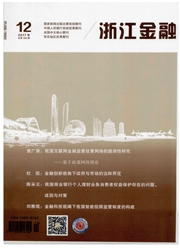

 中文摘要:
中文摘要:
以城市作为空间单位,本文利用泊松模型考察了1998--2007年间可达性和集聚经济对中国制造业新企业选址的影响。主要结论是:(1)区域间需求可达性对新企业具有排斥力,供给可达性和区域内需求可达性对新企业具有吸引力。(2)区域内需求可达性对出口企业选址的影响并不显著,对非出口企业选址则具有明显的吸引力。(3)集聚经济是吸引新企业落户的重要因素,其中地方化经济比城市化经济对新企业的吸引力更大。
 英文摘要:
英文摘要:
Taking 288 prefecture-level cities as firms' choice sets, the paper applies Poisson model to estimate the impacts of accessibility and agglomeration economy on the location of new manufacturing establishments from 1998 to 2007. The paper reaches three main conclusions. First, the inter-regional demand accessibility is a dispersion force to new firms, while both intra-regional demand accessibility and agglomeration economy increase firms' birth. Second, the impacts of accessibilities on the location of export and non-export firms are different. Third, firms' location decisions are dependent on agglomeration externalities, and localization economics show more attraction than urbanization economics to new firms.
 同期刊论文项目
同期刊论文项目
 同项目期刊论文
同项目期刊论文
 期刊信息
期刊信息
